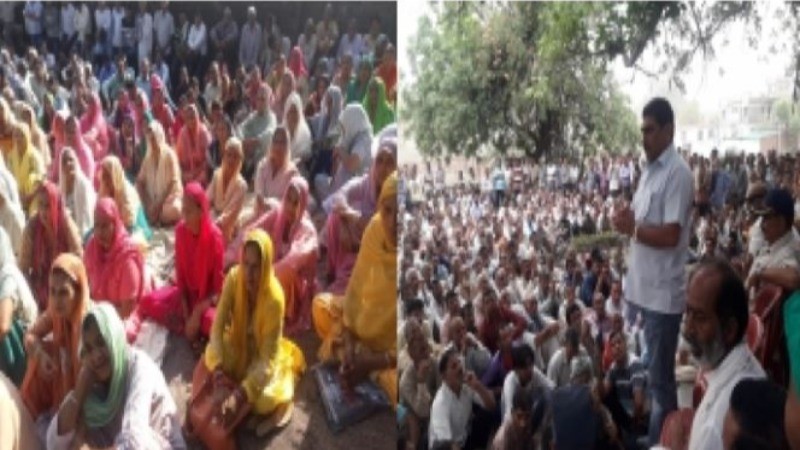
Srinagar: The upcoming assembly elections in Jammu and Kashmir mark a significant milestone, as it's the first time the Valmiki community will participate in the voting process. This development comes after a decade of substantial changes in the region, including the removal of Article 370 and the reclassification of Jammu and Kashmir from a full state to a Union Territory.
Previously, the Valmiki community, consisting of approximately 350 families, had been denied the right to vote. These families were relocated from Punjab to Jammu in 1957 by the government to work as sanitation workers during an epidemic. Despite their long stay, they were never granted permanent resident status and were thus excluded from essential democratic rights.The situation for the Valmiki community began to change after August 5, 2019, when the Modi government abolished Article 370. This constitutional shift allowed these families to finally receive permanent residence certificates in 2020, marking a new chapter in their lives.
दलित-वाल्मीकि समाज के हक मारे थे धारा 370 ने , मैला ढोने वालों के बच्चों को मैला ढोने पर ही मजबूर करती थी धारा 370 ,
— Ashok Shrivastav (@AshokShrivasta6) August 25, 2019
पर दलितों की बात करने वालों को तुष्टिकरण के लिए यह भी मंजूर था l #KashmirKaSach @DDNewsLive @DDNewsHindi #kashmir#कश्मीर pic.twitter.com/vtzI2QonYr
For the first time, around 10,000 members of the Valmiki community will exercise their right to vote in the state assembly elections. Ghaaru Bhatti, President of the Valmiki Samaj, expressed profound gratitude towards Prime Minister Narendra Modi for facilitating these constitutional changes, describing it as a dream come true for the community. Previously, the Valmiki community faced severe restrictions. They were unable to apply for government jobs or higher education due to their lack of permanent resident status. Their situation was analogous to that of lower-caste Hindus in Pakistan, who are relegated to menial jobs like sweeping.
In 1957, the Jammu and Kashmir government brought Valmiki community members from Punjab to work as sweepers, settling them in designated colonies. This occupation was officially classified as the "Bhangi profession," and the community members were barred from pursuing any other jobs or higher education. They could not participate in elections, nor could they apply for government positions.This time, apart from those Dalits, West Pakistani Refugees (WPR) will also be able to vote in the assembly elections for the first time. This includes members of Hindu and Sikh communities. According to official records, about 5,400 families have migrated to the border areas of Jammu - Kathua, Samba and Jammu districts. Community leaders say that these families have now increased to more than 22,000.
The question now arises: why did political parties, which often claim to champion Dalit rights, remain silent when the Valmiki community's rights were suppressed? Despite numerous promises from politicians like Rahul Gandhi regarding caste-based reservations and rights, their opposition to the removal of Article 370—which would have granted the Valmiki community voting rights and equality—seems contradictory. This raises concerns about whether these parties genuinely support Dalit rights or are merely engaging in political rhetoric. The rest of the Dalit community in India should critically evaluate whether political entities that implemented Article 370 or those advocating for its removal are truly their allies.
Amish Tripathi Debunks Claim That India Is a 'British Creation' with Hard Facts
Another SP Leader Faces Rape Charges, FIR Filed by Female Colleague, Suspect Evading Arrest
AAP Leader Somnath Bharti Questions Alliance with Congress for Haryana Assembly Elections